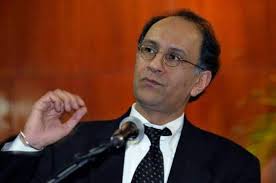The leading global financial institution, the World Bank has said that for Nigeria to significantly transform its economy, it must maintain its current reforms for the next 10 to 15 years.
This was the submission of the Senior Vice-President of the World Bank Group, Indermit Gill.
Gill spoke on Monday at the ongoing 30th Nigerian Economic Summit (NES), organized by the NES Group (NESG) in collaboration with the Ministry of Budget and National Planning.
Themed “Collaborative Action for Growth, Competitiveness, and Stability,” the three-day summit is being held in Abuja.
The World Bank chief, in his welcome address, said the reforms are critical for ensuring long-term growth and enabling Nigeria to compete with other emerging economies in sub-Saharan Africa and globally.
Gill added that the reforms implemented by the current administration must continue to reverse the N10 trillion squandered through petrol subsidy and multiple foreign exchange rates, noting that while implementing the reforms will be challenging, it is essential to persevere.
He maintained, “Nigeria will need to stay the course of current economic reforms for at least the next 10 to 15 years to transform its economy.
“If these reforms are sustained, Nigeria will transform its economy and become an engine of growth in sub-Saharan Africa.
“It is very difficult to implement such reforms, but the rewards are massive.”
On the day he assumed power, May 29, 2023, President Bola Tinubu announced the removal of the petrol subsidy, which has led to a higher cost of living, and increased transportation and production costs.
Also, on June 19, Nigeria’s apex bank, the Central Bank of Nigeria (CBN) announced the unification of all segments of foreign exchange (FX) markets, which took the local currency to unprecedented lows, ultimately leading to higher inflation rates and high cost of living.



